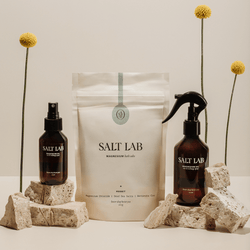One Night of Bad Sleep Can Take Four Days to Fix – Here’s How to Recover Faster
We all know the feeling of waking up groggy after a bad night’s sleep. But did you know that it can take up to four days for your body to fully recover from just one poor night’s sleep? Sleep debt adds up quickly, affecting everything from brain function to immunity and even hunger signals.
The good news? You can take steps to reset your sleep cycle, recover faster, and prevent long-term disruptions to your health. Here’s what science says about restoring deep, restful sleep naturally.
1. One Bad Night = Four Days of Recovery
Missing just a few hours of sleep can impair focus, reaction times, and immune function for days. Research shows that it takes around four full nights of quality sleep to recover from a single night of bad rest.
💡 Quick Fix: If you’ve had a rough night, avoid napping for more than 30 minutes, get natural sunlight exposure early in the day, and stick to a consistent bedtime to help your body reset faster.
2. If You’re Awake for 20+ Minutes, Get Up
Lying in bed awake for more than 20 minutes can actually train your brain to associate your bed with wakefulness rather than sleep. Instead of tossing and turning, get up and do something calming in dim light.
💡 Try This Instead:
- Read a book (not on a screen!)
- Do deep breathing or meditation.
- EFT Tapping (Emotional Freedom Technique) – Tapping on acupressure points can help lower stress hormones and promote relaxation.
Once you feel sleepy again, return to bed. The key is to avoid bright light and absolutely no scrolling!
3. Magnesium Helps Regulate Your Sleep Cycle
Magnesium is essential for activating the parasympathetic nervous system, which is responsible for relaxation. It also supports melatonin production and helps reduce cortisol levels, which can otherwise keep you wired at night.
💡 How to Use Magnesium for Sleep:
- Apply Magnesium Oil before bed for muscle relaxation
- Soak in a magnesium bath to ease tension and calm the nervous system
- Include magnesium-rich foods like nuts, seeds, leafy greens, and dark chocolate in your diet
4. Tapping (EFT) to Support Deep Relaxation
EFT (Emotional Freedom Technique), or tapping, is a powerful tool for reducing stress, quieting an overactive mind, and preparing the body for deep rest. By gently tapping on key acupressure points while focusing on a calming thought, you can signal your nervous system to relax.
💡 EFT Sleep Routine:
- Tap gently on the side of your hand, between your eyebrows, under your eye, and on your collarbone
- Repeat a phrase like “I release the day, I welcome rest”
- Focus on slow, deep breathing as you tap
Studies show that tapping can reduce cortisol levels by up to 43%, making it a simple, science-backed way to unwind before bed.
5. Light Exposure in the Morning = Better Sleep at Night
Your circadian rhythm (internal body clock) relies on morning light to regulate melatonin production. Getting 10–30 minutes of natural sunlight first thing in the morning helps set your sleep-wake cycle, leading to deeper sleep at night.
💡 What to Do:
- Step outside within 30 minutes of waking
- Avoid wearing sunglasses in the morning (natural light exposure to the eyes is key)
- Pair morning light with movement (a walk or stretching) to boost energy levels naturally
Final Thoughts
Your sleep is too important to leave to chance. Whether you’re recovering from a bad night’s rest or looking to optimise your nightly routine, these science-backed habits can help you sleep deeper, recover faster, and wake up refreshed.
✨ Need a sleep boost? Explore our [magnesium range] to help support relaxation and better sleep. 🌙💤
















